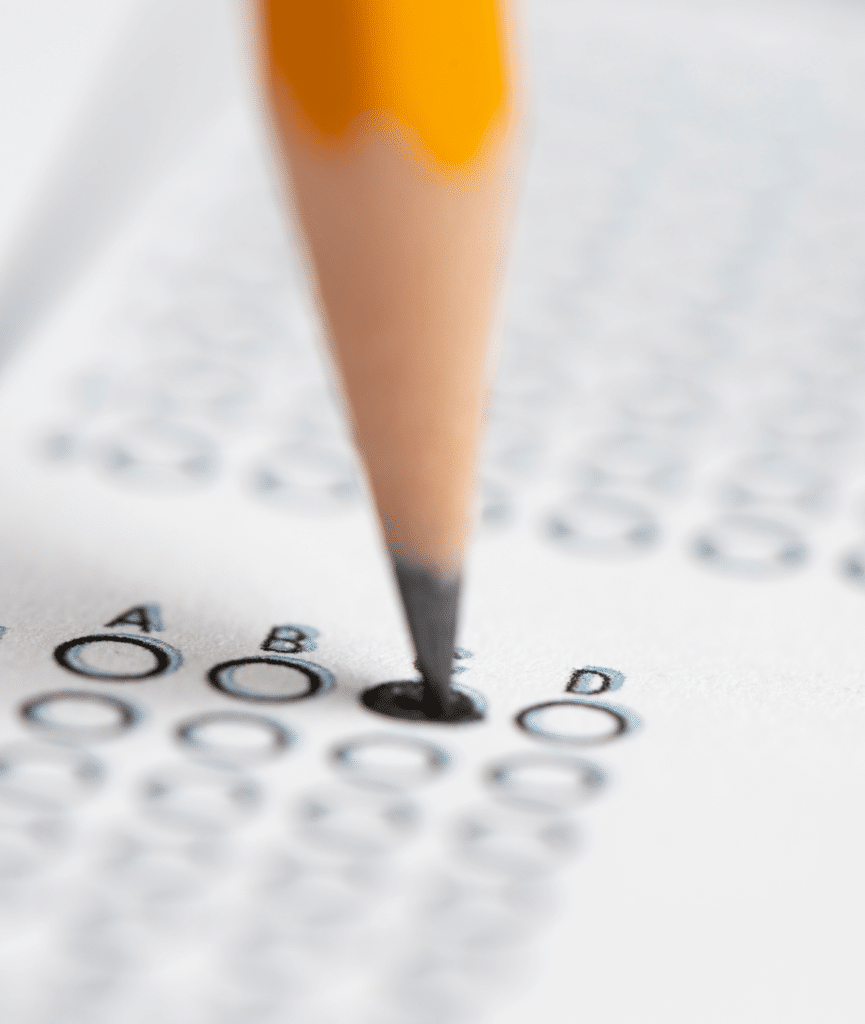Cognitive Assessments for Mental Health Diagnosis & Treatment: Why They Are Important

An intellectual assessment is a process that evaluates your cognitive functioning. It can evaluate how you think, learn, and solve problems by testing skills like memory, language, and reasoning, which are closely related to intelligence (IQ).1 Like any other assessments, they are administered by trained professionals like psychiatrists or psychologists. An intellectual assessment helps show what you’re good at and where you might need support, giving a clearer picture of your abilities, which can be life-changing.
Cognitive and intellectual functioning is directly linked to school or work performance, and overall well-being.2 By making sense of the challenges you’ve faced throughout your life or just recently, you can develop effective coping strategies. On this page, we’ll walk through this process by discussing:
What is an intellectual assessment?- Common tools used in cognitive and IQ testing
- The importance of cognitive ability testing for mental health
- When to seek an intellectual or cognitive evaluation
- What to expect from the intellectual diagnosis process
- Where can you receive an intellectual assessment?
- Intellectual assessments at Mission Connection

What Is an Intellectual Assessment?
These assessments are also essential for the elderly, especially during the first signs of dementia.4 As with younger adults, the goal is not simply a diagnosis, but an understanding of the whole picture. Intellectual assessments help identify the current stage of dementia, allowing your loved one to maintain as much independence as possible while preparing for future care requirements. And once you´ve got that, you can start working with their new rhythm instead of against it.
Common Tools Used in Cognitive and IQ Testing
There are also tools that focus on how you connect ideas – like explaining similarities between different concepts or remembering specific details from a story. Other tests show how quickly you adapt, like rearranging symbols under time pressure or spotting gaps in a sequence. There are even exercises that feel like creative play, such as building shapes with blocks or describing what’s “off” in an image, which reveal how you process space and visual cues.
When used together, these tools help specialists spot patterns or difficulties you’re facing.5 This can help you better understand your everyday struggles and have an effective intervention plan. Depending on the specific cause, there are many treatment options you can benefit from. Even though there may not be a cure, small daily steps can help with the process and even prevent possible future complications.
The Importance of Cognitive Ability Testing for Mental Health
Good cognitive functioning is also associated with better mental health and quality of life. Since cognitive skills are fundamental to your performance at work or in everyday situations, possible problems with these abilities would cause difficulties. You are more likely to feel stressed and anxious if you cannot perform your tasks as you once could. Likewise, cognitive decline can lead to social withdrawal or feelings of hopelessness, all of which contribute to depression.
Conversely, identifying problems with cognitive functioning often leads to an effective treatment plan. Improving these skills can result in better performance at work or school, better social relationships, and even a more effective independent life. All of this can give you more of a sense of hope and control over your life, which can contribute to better mental well-being. Regular testing can also assess the effectiveness of treatment and suggest new strategies to make sure that you’re coping well long-term.
Intellectual Assessments for Children and Adolescents
For kids and teens, these assessments are usually about improving their everyday learning experience.7 Some children may have difficulty with reading but may be very good at math, or vice versa. Intellectual assessment allows for a clearer picture of the child’s abilities and also shows whether they’re dealing with a different learning ability. Also, the focus is placed not on why your child can’t do something well, but on what they can try differently to get good results.
Intellectual assessments also help differentiate between different diagnoses. Perhaps the difficulty your child may have with math at school is an expression of school anxiety rather than a difficulty in cognitive functioning. Clarity like this helps in the early detection of anxiety disorders, intellectual difficulties, or disabilities, which are crucial in early childhood.8
Furthermore, it’s important to diagnose and treat developmental delays early. These particular intellectual assessments, also critical in early childhood, detect difficulties in motor skills, language, or social interaction. Early detection transforms potential lifelong struggles into opportunities for targeted support.
Best of all, it gives young people the key to their own abilities. A teen who feels “broken” learns they think in a way that’s perfect for art but could be tough for algebra. A daydreamer discovers their brain needs stories, not lectures, to engage. This isn’t just helpful for school; it shows them how to value their strengths and embrace their difficulties.
When to Seek an Intellectual or Cognitive Evaluation
Forgetting important events or appointments- Forgetting where you put things and often losing things
- Having trouble finding the right words to say
- Feeling increased irritability and/or anxiety
- Feeling frustrated because normal everyday tasks are challenging for you to do now
- Repeating questions to others
- Difficulty understanding or remembering movies or TV shows
- Having a hard time understanding pieces of information told to you
- Forgetting significant parts of your past
- Feeling irritability and anxiety
On the other hand, if your child is having learning difficulties, such as with writing, reading, or math, this may be a warning sign that a cognitive assessment is needed. Also encountering difficulties with concentration, memory, or forgetfulness is crucial. Other essential warning signs are delays in reaching age-appropriate milestones, whether in motor, verbal, or social skills.
When it comes to cognitive assessments, it’s important to remember that the intention of these is to close the gap between effort and results. If “trying harder” hasn’t worked, testing can reveal why. Whether you’re trying to understand your child’s school resistance or your own invisible hurdles, clarity turns these difficulties into a practical roadmap.
The Intellectual Diagnosis Process: What to Expect
The intellectual diagnosis process often starts with a conversation with a mental health professional. They will ask about your medical history, your symptoms, and struggles, or even possible recent lifestyle changes. Then they will probably use different tools or activities to spot possible difficulties you´ve been facing.
These assessments are designed to better understand how your brain is working and processing information. What specialists find important is observing how you approach tasks, not just their outcomes. The process itself can often feel entertaining or you may feel a little anxious. It’s all normal. The final goal is just noticing what feels fluid for you versus what requires extra mental energy that makes you feel tired or consumed.
Finally, in the end, you’ll probably review results with a focus on practical takeaways. Instead of just a diagnosis, you’ll get real insights about possible explanations of your struggles. It’s an important roadmap that will help identify effective strategies that will improve your everyday performance and functioning.
Where Can I Receive an Intellectual Assessment?
These evaluations are available in different places like school districts (for academic concerns), hospitals (especially after injuries or health changes), and private clinics. Psychologists, psychiatrists, or specialists in learning difficulties often lead the process, whether you’re a student needing classroom strategies or an adult seeking clarity. At Mission Connection we can help you with this process by providing:
- Intellectual testing
- Psychiatric assessments
- Personality insights
- Psychological evaluations
Our team focuses on connecting how your cognitive functioning interacts with emotions, behavior, and daily life. It’s not just testing; it’s providing an effective intervention plan that will help you deal with your struggles.

Intellectual Assessments at Mission Connection
Intellectual assessments are an important step towards better well-being and life quality. At Mission Connection, we support as well as diagnose. Whether it’s unlocking a child’s hidden potential or helping adults deal with work performance challenges, we help turn the confusion you feel into a clear way forward.
Ready to take the next step? Reach out to Mission Connection today.
References
DeLeyer-Tiarks, J. M., Caemmerer, J. M., Bray, M. A., & Kaufman, A. S. (2024). Assessment of human intelligence—The state of the art in the 2020s. Journal of Intelligence, 12(8), Article 72. https://doi.org/10.3390/jintelligence12080072
Jokela, M. (2022). Why is cognitive ability associated with psychological distress and wellbeing? Exploring psychological, biological, and social mechanisms. Personality and Individual Differences, 192, 111592. https://doi.org/10.1016/j.paid.2022.111592
Drozdick, L. W., & Puig, J. (2019). Intellectual assessment. In Cambridge University Press eBooks (pp. 135–159). https://doi.org/10.1017/9781108235433.012
Tsoi, K. K., Chan, J. Y., Hirai, H. W., Wong, S. Y., & Kwok, T. C. (2015). Cognitive tests to detect dementia: A systematic review and meta-analysis. JAMA Internal Medicine, 175(9), 1450–1458. https://doi.org/10.1001/jamainternmed.2015.2152 (Note: Added DOI based on journal citation conventions; please verify the exact DOI if needed)
Kelso, I. G., & Tadi, P. (2022, November 7). Cognitive assessment. StatPearls – NCBI Bookshelf. https://www.ncbi.nlm.nih.gov/books/NBK556049/
Kranzler, J. H., Benson, N., & Floyd, R. G. (2016). Intellectual assessment of children and youth in the United States of America: Past, present, and future. International Journal of School & Educational Psychology, 4(4), 276–282. https://doi.org/10.1080/21683603.2016.1166759
Ancapichún, A., & López-Jiménez, T. (2023). The purposes of intellectual assessment in early childhood education: An analysis of Chilean regulations. Journal of Intelligence, 11(7), Article 134. https://doi.org/10.3390/jintelligence11070134
Cleveland Clinic. (2025, May 5). Cognitive test. https://my.clevelandclinic.org/health/articles/22306-cognitive-test
